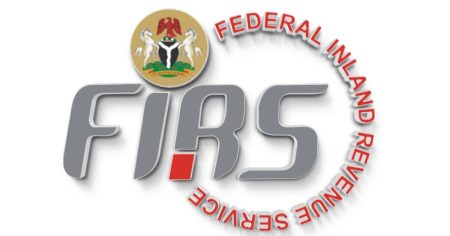A lifestyle audit serves as a powerful tool for self-reflection and personal growth, enabling individuals to gain a comprehensive understanding of their habits, choices, and environments and how these factors influence their overall well-being. It’s not about self-criticism or striving for an unattainable ideal, but rather an opportunity to gain clarity and make conscious decisions that align with one’s values and aspirations. Just as businesses regularly assess their operations for efficiency and profitability, individuals can benefit from periodically examining their lives to identify areas for improvement and enhance their fulfillment. In our fast-paced world, it’s easy to become entrenched in routines that no longer serve us, leading to a disconnect between our actions and our desired outcomes. A lifestyle audit helps bridge this gap by providing a framework for evaluating various aspects of our lives and making necessary adjustments.
The process begins with a thorough examination of daily routines, tracking how time is spent from the moment of waking to falling asleep. This detailed analysis often reveals pockets of wasted time or unproductive habits, such as excessive screen time or procrastination, which can be addressed through small but impactful changes. Reviewing financial habits is another crucial element, involving a careful assessment of income, expenses, savings, and debt. Understanding spending patterns and identifying areas of overspending or financial mismanagement can empower individuals to take control of their finances and work towards financial stability. This includes budgeting consciously, eliminating unnecessary expenses, and building a financial safety net.
Physical and mental health are integral components of a fulfilling life, and a lifestyle audit prompts individuals to evaluate their habits in these areas. This involves assessing sleep patterns, exercise routines, dietary choices, and stress management techniques. It’s about recognizing the interconnectedness of physical and mental well-being and making conscious choices that support both. Regular physical activity, a balanced diet, sufficient sleep, and effective stress management strategies are essential for maintaining optimal health and preventing burnout. Equally important is an evaluation of mental and emotional well-being, which involves examining how stress is managed, ensuring adequate rest, and engaging in activities that promote joy and tranquility. This may include seeking professional support, practicing mindfulness, or setting boundaries to protect mental and emotional health.
Relationships play a significant role in shaping our lives, and a lifestyle audit encourages individuals to assess the quality of their connections. This entails identifying relationships that contribute positively to well-being and those that may be toxic or draining. Setting healthy boundaries, letting go of unhealthy relationships, and nurturing supportive connections are essential for maintaining a positive social environment. Furthermore, examining digital consumption is crucial in today’s technology-driven world. Evaluating the amount of time spent on screens, the type of content consumed, and its impact on mental and emotional state can help individuals make informed decisions about their digital habits. Setting screen time limits, curating online content, and engaging in offline activities can promote a healthier relationship with technology.
Work-life balance is another critical area to address, ensuring that work responsibilities do not overshadow personal life, hobbies, and relationships. Setting boundaries with work, prioritizing self-care, and engaging in fulfilling activities outside of work are essential for maintaining a healthy balance. Re-evaluating goals and purpose is also a valuable part of the audit process. This involves revisiting personal aspirations, ensuring they are still relevant and motivating, and aligning daily actions with these objectives. Breaking down large goals into smaller, manageable steps can make them feel less daunting and increase the likelihood of achieving them. Furthermore, assessing environmental influences, such as the organization and atmosphere of living and workspaces, can have a significant impact on productivity and well-being. Creating a comfortable and inspiring environment can enhance focus and promote a sense of calm.
Finally, reflecting on spiritual and ethical alignment ensures that personal values are reflected in daily choices and actions. This involves identifying core values, such as honesty, kindness, and compassion, and ensuring that behavior aligns with these principles. Living in accordance with one’s values promotes a sense of integrity and authenticity. A lifestyle audit is not a one-time event but rather an ongoing process of self-reflection and adjustment. As life circumstances change, it’s important to periodically revisit these areas and make necessary adjustments to maintain a balanced and fulfilling life. The ultimate goal is not to achieve perfection but to cultivate self-awareness and make conscious choices that support overall well-being.
The benefits of conducting a lifestyle audit are multifaceted. It provides clarity by highlighting what is and isn’t working in various aspects of life, allowing for a more focused approach to personal growth. It empowers individuals to take ownership of their choices and live more intentionally, rather than simply reacting to external pressures. This enhanced sense of agency fosters greater self-respect and a more proactive approach to life. Furthermore, a lifestyle audit promotes a deeper understanding of oneself, leading to increased self-awareness and the ability to make more informed decisions. By identifying patterns and triggers, individuals can better manage their emotions, behaviors, and responses to challenging situations.
The audit process also encourages a more proactive approach to health and well-being, prompting individuals to prioritize self-care and make healthier choices. This can lead to improved physical and mental health, increased energy levels, and a greater sense of overall well-being. By addressing areas of imbalance, such as financial stress, unhealthy relationships, or digital overload, individuals can create a more sustainable and harmonious life. This, in turn, leads to greater resilience and the ability to navigate life’s challenges with greater ease. Finally, a lifestyle audit can contribute to a greater sense of purpose and meaning in life. By aligning actions with values and pursuing meaningful goals, individuals experience a deeper sense of fulfillment and satisfaction. This sense of purpose provides direction and motivation, leading to a more enriching and rewarding life experience.
In conclusion, a lifestyle audit is a valuable tool for personal growth and self-discovery. It provides a framework for evaluating various aspects of life, identifying areas for improvement, and making conscious choices that align with one’s values and aspirations. Through regular self-reflection and adjustment, individuals can cultivate a more balanced, purposeful, and fulfilling life. It’s about taking ownership of one’s choices, living intentionally, and creating a life that reflects who you truly are.














